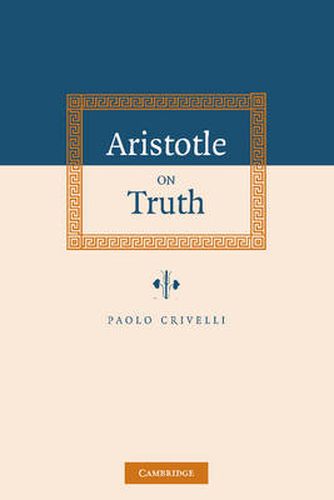Readings Newsletter
Become a Readings Member to make your shopping experience even easier.
Sign in or sign up for free!
You’re not far away from qualifying for FREE standard shipping within Australia
You’ve qualified for FREE standard shipping within Australia
The cart is loading…






Aristotle’s theory of truth, which has been the most influential account of the concept of truth from Antiquity onwards, spans several areas of philosophy: philosophy of language, logic, ontology, and epistemology. In this book, the first dedicated to this topic, Paolo Crivelli discusses all the main aspects of Aristotle’s views on truth and falsehood. He analyses in detail the main relevant passages, addresses some well-known problems of Aristotelian semantics, and assesses Aristotle’s theory from the point of view of modern analytic philosophy. In the process he discusses most of the literature on Aristotle’s semantic theory to have appeared in the last two centuries. His book vindicates and clarifies the often repeated claim that Aristotle’s is a correspondence theory of truth. It will be of interest to a wide range of readers working in both ancient philosophy and modern philosophy of language.
$9.00 standard shipping within Australia
FREE standard shipping within Australia for orders over $100.00
Express & International shipping calculated at checkout
Aristotle’s theory of truth, which has been the most influential account of the concept of truth from Antiquity onwards, spans several areas of philosophy: philosophy of language, logic, ontology, and epistemology. In this book, the first dedicated to this topic, Paolo Crivelli discusses all the main aspects of Aristotle’s views on truth and falsehood. He analyses in detail the main relevant passages, addresses some well-known problems of Aristotelian semantics, and assesses Aristotle’s theory from the point of view of modern analytic philosophy. In the process he discusses most of the literature on Aristotle’s semantic theory to have appeared in the last two centuries. His book vindicates and clarifies the often repeated claim that Aristotle’s is a correspondence theory of truth. It will be of interest to a wide range of readers working in both ancient philosophy and modern philosophy of language.